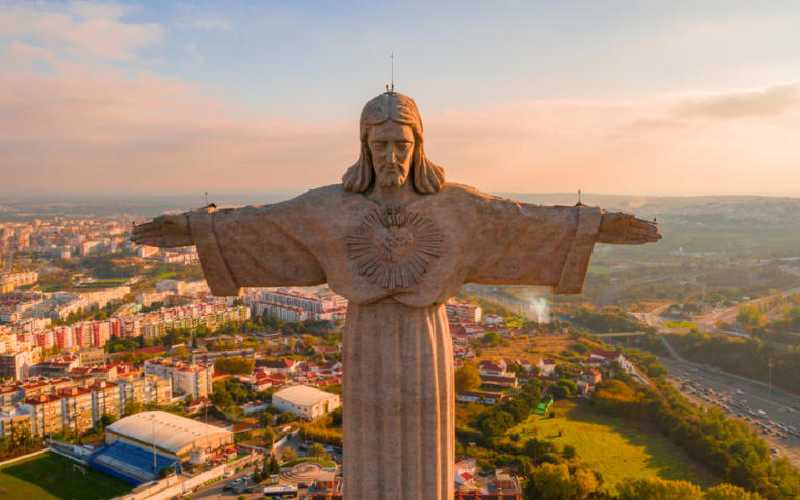Portugal is a predominantly Catholic country, at one point Lisbon had more churches per square mile than Rome itself.
However, there is a mix of religion in Portugal, it’s just that Catholicism is the majority. 81% of Portugal’s population class themselves as Roman Catholic, 3.3% class themselves as another form of Christian, 6.8% do not class themselves as any religion, 0.6% identify as other (this includes Jewish, Muslim, and Hindu etc.), and 8.3% have an unspecified religion. So taking into account that Catholicism is the most popular religion in Portugal, here are some details about the Catholic beliefs. Some of which may affect you if you are living in Portugal due to holidays when shops close.
The Catholic church is considered to he the oldest institution in the Western World, tracing its history back almost 2000 years. Catholics believe that the Pope is the successor to Saint Peter, Saint Peter is the person whom Jesus appointed as the head of the first church. The basis of their beliefs is that God created the Earth and sent Jesus to redeem humanity and humanity’s sins through his death and then later resurrection.
Catholics like all Christians follow the teachings in the New Testament in the hopes that it will lead them to Heaven. The main difference between the Catholic church and other Christian churches is the structure. The Catholic church has a much more complex structure in terms of who can become what, such as Catholics don’t believe that women can become priests, it also contains a hierarchy that includes the pope. The pope sits at the top of the hierarchy, followed by cardinals, archbishops, bishops, priests, deacons, and then laity.
Portugal has many beautiful churches to visit, including; Ermida de Santo António do Alto, Casa de Lucia, Igreja Matriz de Vila do Conde, Batalha Monastery, Igreja de Santo Ildefonso, Bom Jesus do Monte, and Estrela Basilica to name a few.
For expats and visitors to Portugal, religion is likely not to influence you in any way. Just make sure to check for saint days and Catholic church festivals as these periods often lead to the closure of shops and everything else. It also means that you should always be respectful when visiting churches. It is OK to have differing views, but make sure that you don’t treat anybody or any building differently due to your differing views.
Semana Santa (Holy Week) runs from March 28 – April 4th 2021, always starting on Palm Sunday and ending on Easter Sunday. Due to Portugal being a primarily Catholic country, the celebration of Easter is big including processions and traditions that can be seen all over Portugal. Good Friday is actually a public holiday in Portugal. On Easter Sunday, a procession goes along the streets in every city and town.
Other public holidays for religious purposes include; Carnival Tuesday (Mardi Gras)(February 25th), St. Joseph’s Day (March 19th), Corpus Christi (celebrated on the second Thursday after Whitsun)(June 11th 2021), Feast of St. Anthony (June 13th), Feast of St. John the Baptist (June 24th), Assumption Day (August 15th), All Saints’ Day (November 1st), Immaculate Conception Day (December 8th), and Christmas Day (December 25th).
If you enjoyed this article you might also like to read about Porto Cathedral



2 thoughts on “Religion in Portugal”